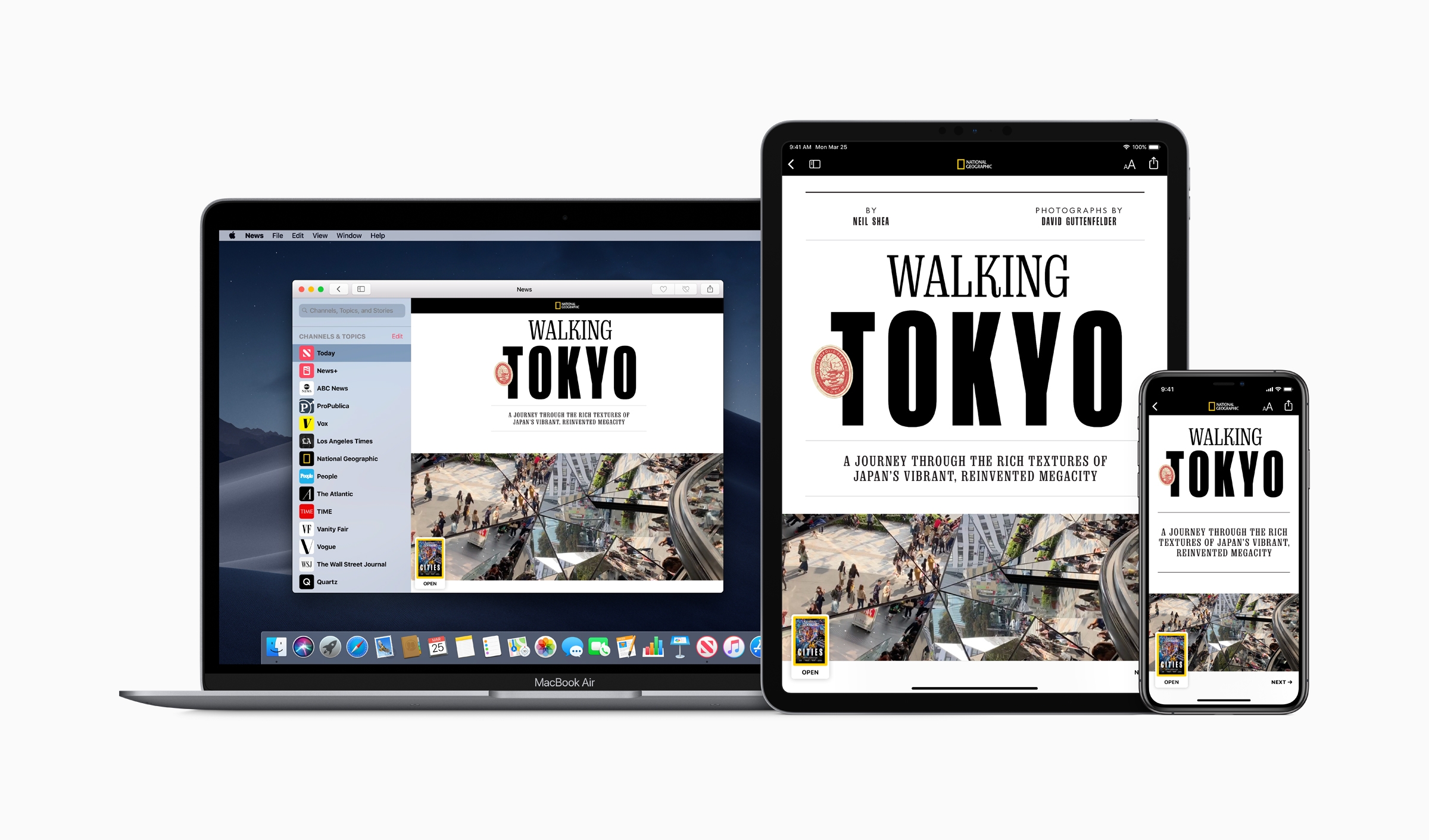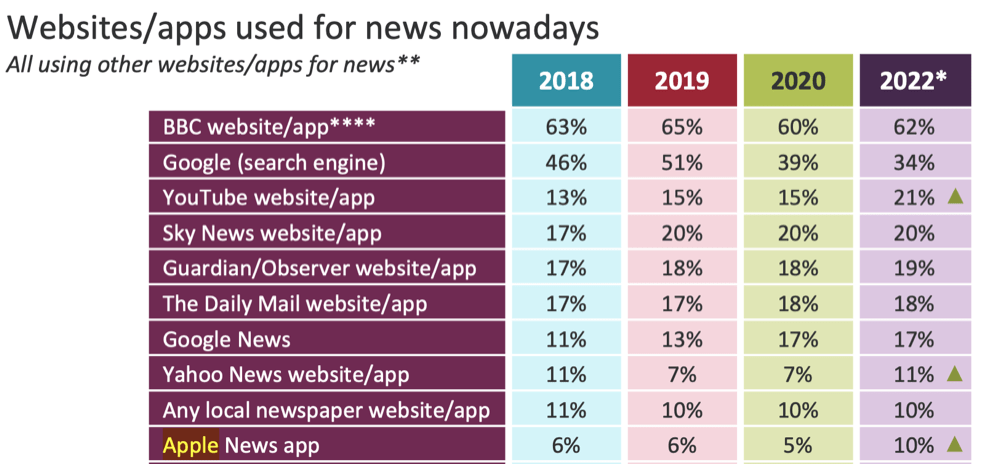Apple News usage has doubled since 2020, says Ofcom

Apple News seems to be among the top ten websites or news apps used in the UK, and the number of people choosing to use it may have doubled since 2020, according to UK media regulator, Ofcom.
Apple News in the news
This finding is somewhat buried in the latest set of announcements from the regulator, which is warning that new regulations may be required to limit the power of Big Tech over what news people read online.
For Apple, the big news (sorry) is that 13% of UK adults now use news aggregators, such as Apple News. The company is seeing increased use of its news service, which seems to have doubled since 2020, the Ofcom data shows – a report last year suggested it has become more popular then the BBC News app.
Unless you profit from sensationalism or are a person of note exploiting the nature of the news cycle to generate huge quantities of ‘hardcore’ coverage each day, the era of fake and personalized news may be coming to a zenith.
Who watches the news machine?
The UK media watchdog has suggested the need for new regulations to govern how tech companies control the news stories we read. It has looked at how news is consumed and now seems to think that big tech firms now occupy too big a role in choosing what news we read.

A detail from the Ofcom report
“Our news landscape has seen huge transformation over the last decade, with online firms offering easy access to an ever-wider pool of stories, voices and opinions,” said Ali-Abbas Ali, Competition Director in Ofcom’s Broadcast and Online Content Group in a statement.
“But while there’s no lack of choice, new concerns are emerging about the impact of the decisions that tech firms make on our behalf to determine the news stories we do – and don’t – see in our feeds.”
[Also read: News Corp says Apple News is ‘important source’ of revenue]
How are we consuming news today?
The issue is that big tech firms have become very powerful gatekeepers making decisions concerning what people read, which also gives them power over what people write.
This may skew public opinion, but also makes for a challenging business environment across any industry that needs to generate coverage.
For example, it finds that 32% of adults use Facebook as a news source, just behind BBC and ITV. 17% use Twitter, the same as Channel 4. TikTok, Instagram and YouTube are widely used by teenagers.
One interesting statistic is that the regulator thinks two out of three adults use tech – from social media to news apps – to consume news. In the UK, 14% of adults now only look at news online.
But who chooses the news you see?
Ofcom thinks too many people just don’t understand how the news they are presented with is chosen and don’t necessarily realise which stories are being hidden from view. Just 35% of people understand how the news is personalized for them. They also don’t realize that rules around media plurality don’t apply to these big tech platforms. This implies that readers aren’t being guided toward objective news consumption and are instead being driven into personalized echo chambers.
What happens next?
Ofcom suggests new regulation may be required. Principally, it wants tech firms to be more transparent concerning how they choose the news they see online. It also wants news consumers to be given additional tools to increase their autonomous choice and control of the news they read. But the main take away seems to be that the unwarranted control over the news cycle exercised by some tech firms may slowly be coming to an end. This may be good news for some.
Please follow me on Twitter, or join me in the AppleHolic’s bar & grill and Apple Discussions groups on MeWe. Also now on Mastodon.




